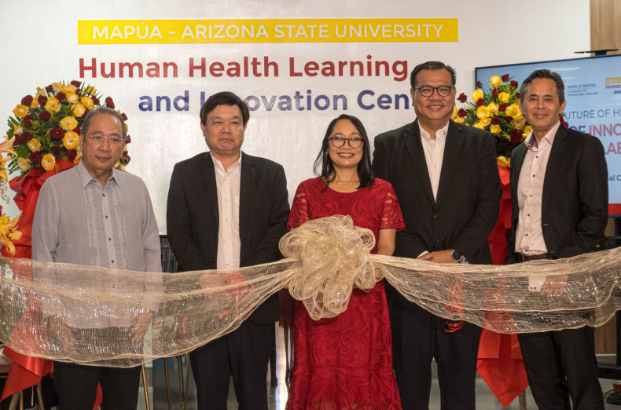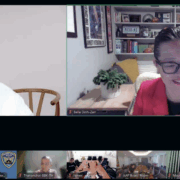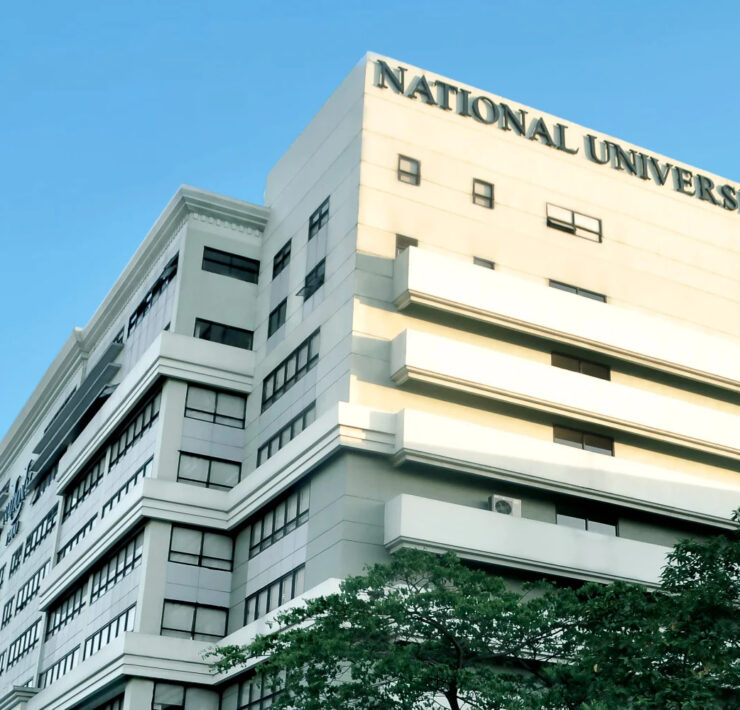Mapúa University’s new School of Medicine ushers in a new era in medical education, healthcare in the country

In a significant step forward for Philippine medical education, Mapúa University recently launched its School of Medicine in collaboration with Arizona State University and the Mapúa-Arizona State University Human Health Learning and Innovation Center. This new institution is set to redefine how the country prepares its healthcare professionals, integrating advanced technology and innovative learning approaches.
The inauguration ceremony was graced by leaders in medical education, government, and healthcare, all emphasizing Mapúa’s commitment to modernizing medical training.
“We feel privileged to be reimagining medical education in the 21st century,” said Dr. Malaya P. Santos, Dean of the Mapúa School of Medicine.
As she welcomed the audience at the ceremony, Santos described the school’s groundbreaking “Discover” curriculum, which stands for diversity, inclusion, sustainability, compassion, ownership, volunteerism, equity, and respect. This, according to her, is “designed to empower students to shape their learning journey,” introducing core values integrated with advanced AI-driven tools that tailor education to individual learning styles.
“We no longer offer a one-size-fits-all curriculum. Instead, we allow our students the chance to chart their learning paths with AI-driven personalization,” Santos said. Mapúa’s new curriculum redefines medical training to encourage students to actively participate in building their skills and perspectives. From Santos’s point of view, the curriculum’s flexibility and use of digital tools are essential for equipping future healthcare providers with the skills they need in an ever-evolving healthcare landscape.
The launch of the Mapúa School of Medicine also highlighted the university’s strategic collaboration with Arizona State University (ASU), #1 in innovation among U.S. universities, ahead of Stanford, MIT and Caltech, for 10 straight years by U.S. News & World Report.
The collaboration with ASU, Santos said, “brings global standards of education to our students, allowing them to apply best practices from around the world in a local context.” With access to ASU’s research and methodologies, Mapúa’s medical program promises to produce globally competent, culturally sensitive healthcare professionals prepared for both national and international demands.


One of the most exciting features of the new School of Medicine is its cutting-edge technology, which includes digital and virtual reality (VR) tools for anatomy and clinical skill training. Santos said, “Our students will use tools like telemedicine, electronic medical records, and VR simulations, enabling them to gain hands-on experience with technologies transforming healthcare.” This approach ensures that students are well-prepared to navigate the technological advancements shaping modern medicine.
The opening event also showcased key messages from notable speakers. Assistant Secretary for Health Policy and Systems Development Dr. Mylene M. Beltran, representing the Department of Health, emphasized the importance of resilient healthcare systems in the Philippines.
Speaking to the audience, she highlighted the National Health Human Resources for Health (HRH) Master Plan, a strategic initiative aimed at enhancing the country’s health workforce. “To address our health system’s vulnerabilities, we must equip our health workforce with the skills to face complex challenges,” Beltran said. She underscored the role of the Mapúa School of Medicine in cultivating future healthcare professionals who are “both compassionate and competent, ready to serve and respond to various health crises.”
In addition to Santos and Beltran, the event featured insights from Dr. Francisco Gutierrez, Head of Medicine & Health at Cintana Education. Gutierrez, an expert in medical curriculum development, shared his vision for transforming traditional medical education to meet contemporary healthcare needs.
He emphasized the potential of integrating advanced tools like virtual anatomy labs, augmented reality, and mixed reality simulations. “Creating a new medical school allows for innovation and the chance to rethink old methods,” Gutierrez said, highlighting the unique opportunity that Mapúa has in shaping the future of medical education.
Former Secretary of Health Dr. Manuel M. Dayrit, who is also the founding chair of Mapúa’s Medical Council, shared his thoughts on the school’s mission. He discussed the competencies needed for 21st-century physicians, classifying them into foundational and cross-cutting categories, which include communication, professionalism, and ethical behavior.
Dayrit praised Mapúa’s inclusion of three additional competencies—global readiness, digital mastery, and immersive learning—as critical elements that distinguish it from other medical schools. “These competencies provide Mapúa with a cutting-edge advantage in medical education,” Dayrit said, expressing his confidence in the school’s potential to produce world-class physicians.
Closing the event, Dr. Bonifacio T. Doma Jr., Executive Vice President for International Alliances and Cintana Partnership Executive Director spoke about the enduring vision that brought the School of Medicine to life. He highlighted the university’s commitment to producing healthcare professionals who can contribute to global medical advancements.
“This center represents a commitment to healthcare excellence, and we look forward to the remarkable contributions our graduates will make to the field,” Doma said. Reflecting on the three-year journey to establish the school, Doma expressed gratitude to Mapúa’s leadership, faculty, students, and ASU for their unwavering support.
A guided tour followed the inauguration, showcasing the university’s state-of-the-art facilities. The tour included the Structure and Function Laboratory, which combines interactive anatomical models and digital tools to bring physiology to life. Attendees were particularly impressed with the clinical simulation rooms, where students will practice procedures in a controlled environment, reinforcing Mapúa’s commitment to patient safety and hands-on training.
The launch of the Mapúa School of Medicine and the Mapúa-ASU Human Health Learning and Innovation Center marks an important moment in the evolution of medical education in the Philippines. By combining technological innovation, a customized curriculum, and a partnership with one of the world’s top health education institutions, Mapúa University is setting a new standard. This institution promises to cultivate a new generation of doctors and healthcare professionals prepared to address both local and global health challenges, shaping the future of healthcare in the Philippines.
To know more about Mapúa School of Medicine, go to mapua.edu.ph


















